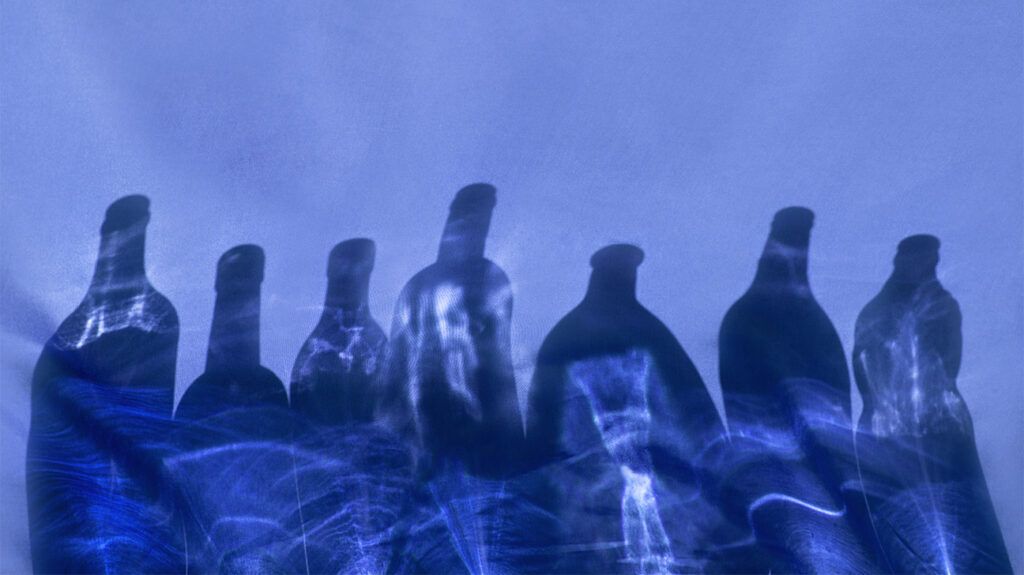People have been drinking alcohol for millennia. But there’s still a lot of misinformation about alcohol and alcohol use disorder.

It’s common for people to have a casual relationship with alcohol. However, this attitude may contribute to many myths about alcohol and alcohol use disorder.
Alcohol use disorder is a complex medical condition affecting the brain. It involves an inability to control your alcohol consumption, regardless of its negative effect on your life or health.
The traditional treatment approach for alcohol use disorder typically involves cutting out alcohol completely, including:
- medications
- talk therapy
- support groups
You may have heard myths about alcohol and alcohol use disorder presented as facts. While some myths might be more harmful than others, it’s essential to understand the realities of alcohol and alcohol use disorder.
Myth: Giving minors alcohol under supervision is responsible
A common myth around teens and young adults is that it’s more responsible to give minors alcoholic drinks with adult supervision. This myth is based on the idea that kids will drink anyway, so they might as well be in the presence of a responsible adult.
This is false, and research suggests the opposite.
An Australian longitudinal
A 2015 study involving 561 students found that children who drank alcohol before sixth grade were more likely to abuse alcohol when they reached ninth grade.
The same study also notes that most students reported taking their first sip of alcohol at home, usually given to them by a parent.
Myth: Occasional drinkers don’t have alcohol problems
Alcohol use disorder isn’t the only alcohol-related condition that could cause harm.
Binge drinking, for example, doesn’t involve physical alcohol dependence. Still, it can be
People who binge drink may only occasionally drink in excess. And while they may not necessarily have alcohol use disorder, regular binge drinking could lead to developing alcohol use disorder.
Myth: You can ‘sober up’ quickly
Many people may believe the myth that loading up on bread, heavy foods, or even drinking coffee will lower your blood alcohol level. The truth is that time passing is the only way for alcohol to wear off.
Alcohol can affect people differently. How quickly your body metabolizes alcohol can depend on:
- age
- weight
- the last time you ate
- medications
- how fast you drank the alcohol
- how much you drank
- how healthy your liver is
Myth: Alcohol makes sex better
Even though alcohol can lower your inhibitions, it’s also considered a depressant. This means that alcohol can reduce sex drive and impact a person’s ability to maintain an erection.
There’s also a direct
Myth: It’s OK to drink and drive after only a few drinks
In most of the United States, your blood alcohol content (BAC) must be under 0.08% for you to legally drive.
Depending on how you metabolize alcohol, your BAC can reach this level after only one drink.
Myth: Older people don’t develop alcohol use disorder
People can develop alcohol use disorder at any age. Not everyone who starts drinking at a young age will necessarily develop the condition.
As you age, you may be
Myth: You can drink and remain in control
You don’t necessarily need to be drunk for alcohol to affect your decision making abilities. And when your ability to make decisions is impaired, you’re no longer in control.
Myth: Drinking can help with chronic pain
You may think that drinking can help alleviate pain, but
And if you’re taking medication for your pain, there could be drug interaction risks. Taking acetaminophen with alcohol, for instance, increases your risk of liver failure.
Myth: People with alcohol use disorder usually have fewer life resources
Anyone can develop alcohol use disorder, regardless of personal circumstances such as:
- housing
- employment
- education
- socioeconomic status
People with higher socioeconomic status may be more likely even to drink more than people from under-resourced communities.
A
However, a
Myth: A person with strong willpower is less likely to develop alcohol use disorder
Alcohol use disorder has nothing to do with willpower. You’re not weak or less than if you have this condition.
Alcohol use disorder is a medical condition that cannot be overcome with willpower alone. However, willpower can be a strong tool for those in recovery from substance use disorder.
Myth: You can still occasionally drink while in recovery
One nontraditional form of treatment for alcohol use disorder is
However, there’s limited research showing the efficacy of this form of treatment.
Critics of moderation management note that this form of treatment may encourage denial in people with alcohol use disorder, which may delay seeking more effective treatment.
Whether you’re living with alcohol use disorder or know someone who is, some suggestions for supportive resources include:
If you think you may have alcohol use disorder or a related problem, such as binge drinking, you’re not alone.
People may often avoid seeking treatment because of the stigma associated with these conditions. However, treatment is within reach.
When you find the right tools and support for you, it’s possible to recover from alcohol use disorder. For ways to seek support, you can visit Psych Central’s guide to mental health help.